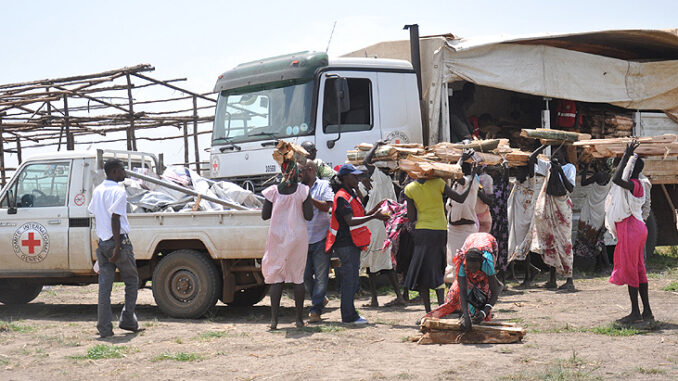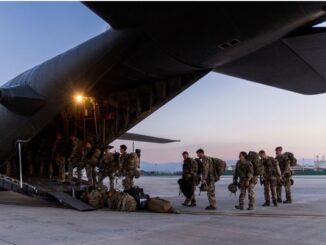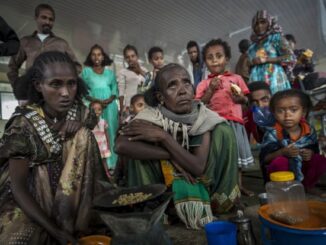
•UN appeals for $4.1 billion to ease ‘epic suffering’ caused by war
Internet connectivity was shut down for a third day in Sudan amid ongoing clashes between the Sudanese army and the paramilitary Rapid Support Forces (RSF) that have left thousands killed and millions displaced in nearly 10 months of fighting where nearly 18 million people are said to be facing acute hunger.
Internet monitoring firm, Netblocks confirmed the outage Friday, saying that “a near-total telecoms blackout” has limited communication in the country and prevented the Sudanese people from seeking safe zones and accessing healthcare and banking services.
The Sudanese foreign ministry blamed the RSF for the blackout which further complicates the dilemma of millions of locals unable to flee the conflict and who the UN says are in dire need of humanitarian aid. The RSF has yet to publicly deny responsibility for the blackout.
The UN on Wednesday appealed for $4.1 billion to meet the “most urgent humanitarian needs” amidst “epic suffering” in Sudan, adding that half of its population – some 25 million people need support and protection, with millions hungry and displaced by the war.
ALSO READ: Ethiopian PM Abiy, Tigray leaders meet over differences on referendum, drought response
Citizens facing acute hunger
The UN Office for the Coordination of Humanitarian Affairs (OCHA) and the UN’s Refugee Agency (UNHCR) launched the joint appeal, seeking $2.7 billion for humanitarian aid to 14.7 million people, and $1.4 billion to support nearly 2.7 million refugees in five countries neighboring Sudan.
“Ten months of conflict have robbed the people of Sudan of nearly everything – their safety, their homes and their livelihoods,” said the UN’s emergency aid chief Martin Griffiths, adding that last year’s appeal was less than half funded.
While the Sudanese Armed Forces (SAF) and the paramilitary RSF have both failed to honor their previous commitments to facilitate humanitarian aid for civilians, attacks on humanitarian workers, facilities and supply convoys have taken place since the war’s outset. Humanitarian aid has been severely hampered by the fighting and lack of access.
The RSF on Thursday, in an apparent effort to deflect responsibility for the large scale civilian suffering in Sudan called for “prompt action from regional and international organizations and agencies to provide urgent relief, adding that Sudanese civilians were “facing the real possibility of starvation.”
The organization’s head, Mohamed Hamdan Dagalo, known as Hemedti, in a post on X, wrote that the crisis is “largely due to the obstruction of humanitarian aid by the opposing forces.”
Nearly 18 million people are facing acute hunger, according to OCHA, with civilian infrastructure like water supplies damaged by the fighting, and three-quarters of health facilities not functioning in conflict areas.
Some 19 million children not attending school, continued widespread human rights violations, and gender-based violence are among the challenges cited in the UN’s funding appeal.
The war that erupted in April 2023 between Sudan’s Armed forces and the paramilitary RSF has created the world’s largest displacement crisis, with children making up nearly 4 million of those fleeing their homes.
In Sudan’s North Darfur Zamzam camp for displaced people, at least one child dies every two hours from malnutrition, according to estimates by the Médecins Sans Frontières (MSF), also known as Doctors Without Borders.
Sudan’s two warring factions have been accused of gross human rights violations.
The US determined that both SAF and RSF members have committed war crimes, holding the latter responsible for crimes against humanity and ethnic cleansing in Sudan.
According to CNN, the International Criminal Court prosecutor said “there are grounds to believe” genocide, war crimes, and crimes against humanity – are being committed in Sudan’s Darfur region by both SAF and RSF, and their affiliated groups.




